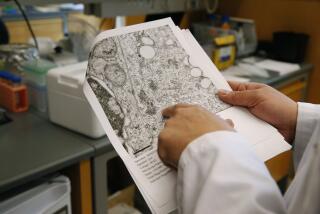Tustin Schools Make Drug-Test Kits Available to Parents for Free
Tustin schools are handing out free drug-testing kits to parents who may be worried their children are experimenting with marijuana, cocaine or other illegal substances.
The nonprofit Assistance League of Tustin bought 300 of the $25 urine-testing kits, which have a three-year shelf life and are being distributed to parents at the city’s four high schools and the league.
“We’re taking a proactive approach to empower parents to make a private decision to prevent their child from using and abusing drugs,” said Mark Eliot, spokesman for Tustin Unified School District.
Although drug testing by schools can raise thorny legal issues, there are no laws prohibiting parents from screening their minor children. Still, civil libertarians said strict anonymity was essential to avoid rights violations.
“It’s very important that the school district not keep a record of which parents are requesting the drug testing kits,” said Elizabeth Schroeder, associate director of the American Civil Liberties Union of Southern California. “It’s also very important that the parents not be required to report back to the school on the results of the test.”
In Tustin, parents can anonymously request the kits, and results are not disclosed to the district. The kits screen for marijuana, cocaine, methamphetamines, opiates and PCP. The Food and Drug Administration-approved tests provide instant results, and parents can verify positive results at no cost by sending samples to a list of laboratories enclosed in the kit.
Tustin Unified, like most of the nation’s 17,000 school districts, has no formal in-school drug-testing program.
More than 200 districts offer some form of testing, such as random screenings of student athletes or a voluntary testing program, according to the White House’s Office of National Drug Control Policy. Far fewer districts offer at-home testing kits.
“It’s encouraging to see different parts of the community come together to address the issue,” said Rafael Lemaitre, deputy press secretary of the Office of National Drug Control Policy. “This is clearly an example of parents working with schools to address a common and shared problem.”
Carol Merritt, philanthropic vice president of the Assistance League, said the organization wanted to help parents tackle drug abuse. The kits could also help deter children from trying drugs.
“We really need to get the blinders off the parents,” she said. “Parents don’t have enough tools in their repertoire because this is a real hard issue for parents to even deal with it.”
More to Read
Sign up for Essential California
The most important California stories and recommendations in your inbox every morning.
You may occasionally receive promotional content from the Los Angeles Times.











